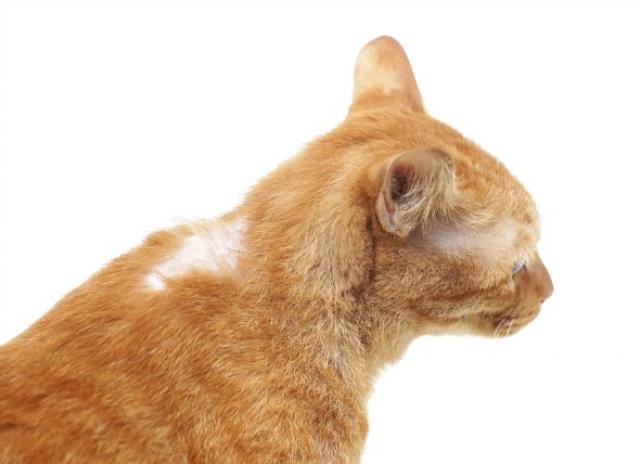Why Is My Cat Losing Weight And Hair
Why is my cat eating so much and losing weight? Many hyperthyroid cats also experience patch sections of hair loss.

Pin On Chonky Chonker Fat Cats
Parasites that bring about mange, and fungal issues like ringworm, are also common causes of cat alopecia, especially in younger cats or those with other health issues.

Why is my cat losing weight and hair. Outside of the thyroid, if cats have a hormonal imbalance and an increased level. Most commonly, this happens on the belly due to stomach or abdominal pain, constipation, or even bladder inflammation and pain. Weight loss can be caused by so many ailments, it’s important for you to know your cat.
I would say a strong possibility is hyperthyroidism. Without treatment, hair loss around the tail in cats often leads to localized balding which leaves the coat of the felines in an unsightly state. This condition increases metabolism that makes the cat lose weight even if it’s eating more.
Our feline buddies are often discreet whenever they feel unwell. Also, insulin needs can fluctuate over time. There are a few different reasons for cat hair loss.
The only way to know what the insulin is doing to the blood glucose level is to test bg regularly at home. Veterinarian answers reader question regarding cat suffering from hair loss hi kirk, could the “black dots” you mention be flea feces? The first step in treatment is finding out the underlying cause of the hair loss.
If you can collect some, put them on a white piece of paper with a small drop of water. Many cats are predisposed to anxiety and stress, which can lead to excessive grooming and hair loss. Reduced intake can include reduced appetite, pain eating (such as dental disease), or a lower calorie diet.
Weight and hair loss can also be signs of illnesses that your cat is trying to hide such as organ failure, infections, chronic disease, and cancer. Some reasons for a cat losing hair and weight such as changes in food, routine, and environment need attention, but should not cause worry. Some of the signs are weight loss (despite a very good appetite), increased water consumption, and hair loss.
Weight loss can be caused by many different problems, such as: Losing weight while eating a lot are signs of unregulated diabetes. A cat losing hair may have hyperthyroidism — an overactive thyroid, which causes weight loss and other symptoms.
It's common in middle aged/older cats. Any information that you can provide the veterinarian can help in the diagnostic process. Some cats experience skin allergies, which can cause hair loss to occur.
In your cat, bald patches and hair loss can also be caused by a hormonal imbalance. Hair loss caused by fleas could happen pretty much everywhere but the head, especially around the eyes, is the most vulnerable as cats often rub. A cat that is losing hair has multiple potential causes including flea allergy, excessive licking, mange, ringworm, stress and thyroid disease.
If you notice your cat is losing hair, take your cat to your veterinarian for an exam. What are the reasons for sudden weight loss in cats? Important answers to questions you should know in a weight loss case are primarily eating habits, energy levels and any recent injuries the cat might have sustained.
Pain can also cause them to lick excessively and lose hair in the painful area. Treatment is based on diagnosing and eliminating the underlying cause. excessive amounts of cat hair loss is not normal an can indicate some type of underlying disease. One of the most common conditions resulting in weight loss despite a good appetite is hyperthyroidism.
When there is a surplus or deficiency of these hormones, hair loss can occur. Specific hormones are responsible for your cat’s hair growth and in turn, may also be the reason why your cat is losing hair. Learn more about feline hyperthyroidism, and what your options are for treatment.
Why is my cat losing weight? The sooner the cause is diagnosed, the sooner the cat can be feeling better and growing back their coats. Hyperthyroidism is usually thought of as a disease in senior cats but can be diagnosed as early as 6 years, with an average patient age of 13 years old.
It's possible that your kitty might need a larger dose. It's not a set and forget thing. Usually caused by the presence of a noncancerous tumor in the thyroid gland, this problem typically arises in cats 13 years of age and older.
That is why it could be traumatizing for you to see your cat losing hair at base of tail day after day without stop. If the mixture turns a reddish brown color (from the digested blood in the feces), you have your diagnosis. Cats can lose fur on their hind legs due to a variety of issues.
We can help if you're willing to try that.

Hair Loss Related To Cancer In Cats Petmd

Pin On Hair Dressing Tips For Anyone

Help My Cat Is Losing Hair Causes What You Can Do Cat Care Cats Lost Hair

Pin On Fitness

4 Common Reasons For Cat Hair Loss Cat Hair Loss Hair Loss Patchy Hair Loss

Pin On Tips For Cat Owners

Pin On Cat Grooming

Pin On Cat Kitten

The Most Common Reasons For Cat Hair Loss Petcarerx

Pin By Acadia Vet Clinic And Pet Reha On Pet Health Resources Pet Vet Cat Behavior Cat Health

My Cat Is Getting Skinny But Is Still Eating - Why Your Cat Is Losing Weight

Pin On Healthy Pets

Help My Cat Is Acting Weird And How To Fix It Cats Cat Care Weird

Heartworm In Cats How To Deal With Them Heartworm Cats Cat Language

Pin Pa Untitled

Pin On Fur Mowing In Cats

13 Causes Of Feline Hair Loss Lovetoknow

I Like Long Walks To The Food Bowl And Lick My Own Chest Hair Would You Swipe Right Tindercat Follow My Hashtag Jawothecat Pretty Cats Cats Cute Cats

Pin On Cats